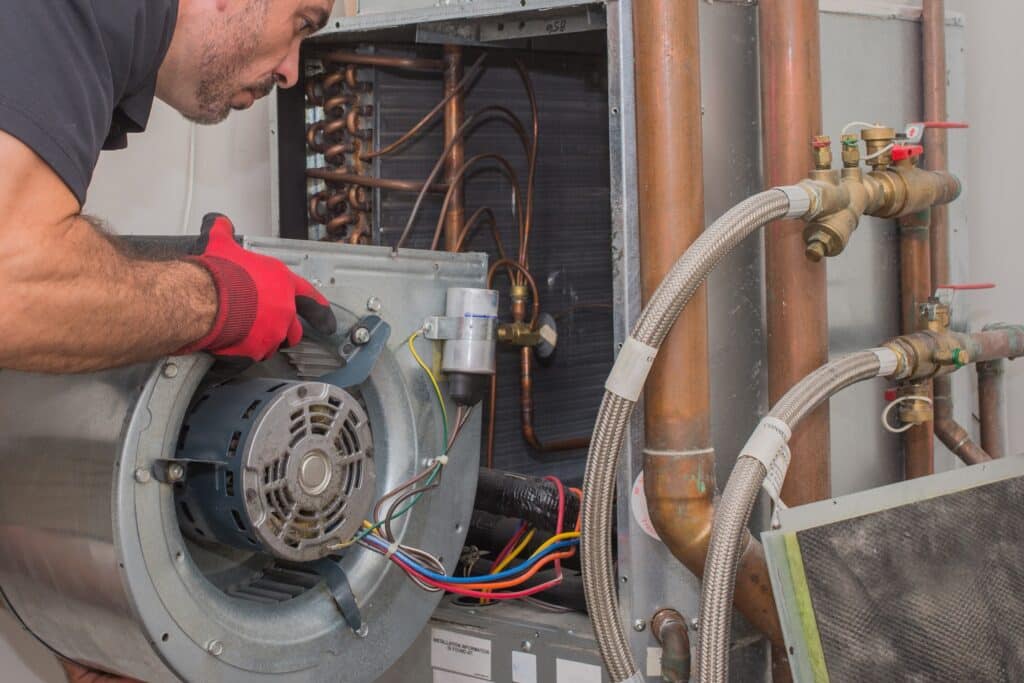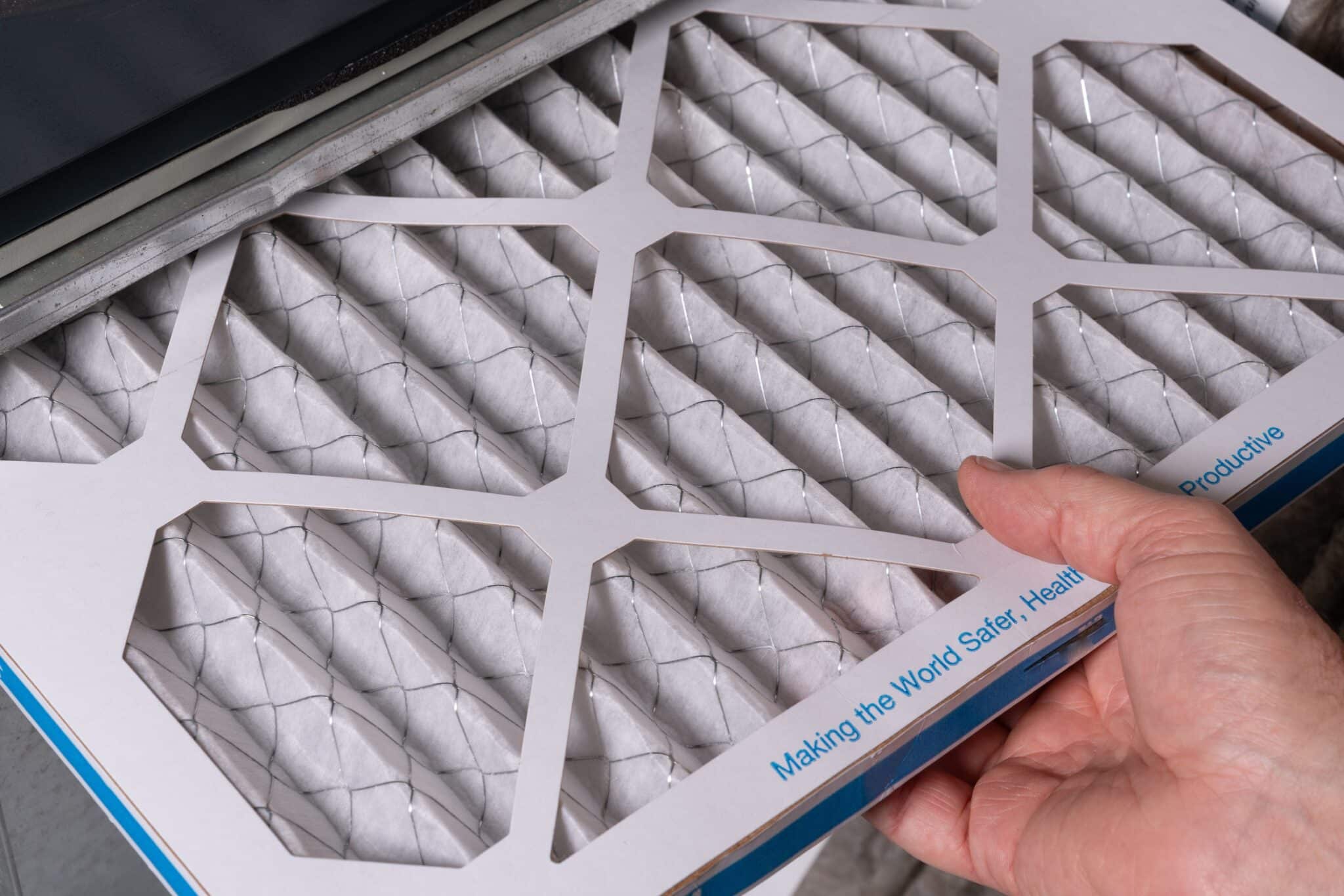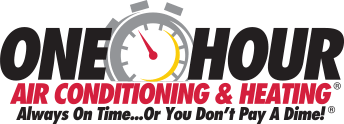
Dallas HVAC Efficiency: Optimizing Indoor Air Handlers
In Dallas, TX, where temperatures can soar, maintaining an efficient HVAC system is crucial for comfort and energy savings. Optimizing the performance of your air handlers is a key strategy to enhance overall HVAC efficiency. This approach not only ensures your system operates at peak performance but also extends the lifespan of the equipment. By focusing on the air handlers, homeowners in Dallas can enjoy a more consistent indoor climate and potentially lower utility bills.
Air handlers are central to the HVAC system, circulating air throughout your home. When they function optimally, they contribute significantly to the HVAC efficiency, providing a steady and reliable flow of conditioned air. In regions like Allen, TX, where the climate can vary significantly, having an air handler in top condition is essential. This ensures that regardless of external temperatures, your home remains a sanctuary of comfort.
However, many homeowners overlook the importance of air handler maintenance, which can lead to decreased performance and increased energy consumption. Regular checks and balances can prevent such issues, promoting better air quality and efficiency. By paying attention to this crucial component, residents can ensure their system is not working harder than necessary, thus maintaining optimal HVAC efficiency.
Understanding the role and function of air handlers will empower homeowners to make informed decisions about their HVAC systems. This introduction sets the stage for a deeper dive into specific techniques that can be applied to optimize air handler performance in Dallas homes. With the right knowledge and approach, achieving and maintaining high HVAC efficiency is not just possible but can be a straightforward process for homeowners in the Dallas area.
Understanding the Role of Air Handlers in HVAC Efficiency
Air handlers play a pivotal role in the overall HVAC efficiency of homes in Dallas, TX. These units are responsible for moving air throughout the heating and cooling system, which directly influences how effectively the system operates. When air handlers are in peak condition, they distribute air more evenly and reduce the strain on other components of the HVAC system. This not only improves comfort levels in your home but also contributes to energy conservation.
In Allen, TX, where temperature fluctuations are common, the efficiency of air handlers becomes even more critical. An air handler that is not functioning properly can lead to inconsistent temperatures and increased energy usage. This inefficiency can cause the HVAC system to work harder, which in turn shortens its lifespan and leads to higher utility bills. Therefore, understanding how these units impact HVAC efficiency is crucial for maintaining an optimal indoor environment.
To ensure that air handlers contribute positively to HVAC efficiency, regular maintenance is essential. This includes checking and replacing filters, inspecting coils for cleanliness, and ensuring that the blower components are free of obstructions. These steps help maintain the unit’s ability to circulate air efficiently, thereby enhancing the overall performance of your HVAC system. Homeowners should consider professional inspections to catch and address any issues before they become major problems.
By prioritizing the health of air handlers, residents in Dallas and Allen can enjoy a more efficient HVAC system. This not only makes their homes more comfortable but also promotes energy efficiency. With the right care and attention, air handlers can significantly boost HVAC efficiency, providing a comfortable indoor climate regardless of the season. Understanding and maintaining these components is key to maximizing the performance and efficiency of your home’s heating and cooling system.
Key Features of Efficient Air Handlers
When considering the key features of efficient air handlers, it’s important to focus on components that directly contribute to HVAC efficiency. One critical feature is the design of the blower components. Efficient air handlers typically have variable speed fans that adjust the flow of air based on the needs of the space, reducing energy consumption while maintaining comfort in homes across Dallas, TX. This adaptability ensures that the system uses only the energy it needs without overexertion.
Another essential feature is the filtration system within the air handlers. High-quality filters not only purify the air but also protect the equipment from dust and debris, which can impair efficiency. In places like Allen, TX, where allergens and particulate matter can fluctuate with the seasons, having a robust filtration system helps maintain indoor air quality and enhances HVAC efficiency. This is crucial for both health and operational efficiency.
Energy recovery is a feature that marks a top-tier air handler. These systems recover energy from exhaust gases to pre-condition the incoming air, significantly reducing the workload on the HVAC system. This process not only improves HVAC efficiency but also contributes to a lower environmental impact. As energy prices and ecological concerns continue to rise, energy recovery systems are becoming a valuable feature in modern air handlers.
Lastly, the overall construction and insulation of the air handler unit play pivotal roles in preventing energy loss. Properly insulated units ensure minimal heat escape or entry, maintaining the desired indoor temperature with less energy. This construction detail is particularly beneficial during the extreme temperatures often experienced in Dallas and Allen, TX, ensuring that the air handlers operate efficiently and effectively. By understanding these key features, homeowners can make informed decisions about their HVAC systems, leading to better performance and energy savings.
Common Issues That Impact Air Handler Performance
Despite the critical role of air handlers in maintaining HVAC efficiency, several common issues can hinder their performance. One prevalent problem in Dallas, TX, is the accumulation of dirt and debris in the ducts and on the coils. This buildup can restrict airflow and force the system to work harder, thereby reducing efficiency and increasing energy consumption. Regular cleaning and maintenance are essential to prevent these issues and ensure optimal performance.
Another issue that impacts HVAC efficiency is poor installation or aging components. In Allen, TX, where temperatures can vary dramatically, an improperly installed air handler can lead to uneven temperature distribution. Similarly, worn-out parts such as belts and motors may not only cause inefficiency but also increase the risk of breakdowns. Homeowners should consider periodic reviews of their system’s installation and component integrity to avoid these pitfalls.
Moisture accumulation within the air handler can also be a significant problem, leading to mold growth and reduced air quality. This not only affects HVAC efficiency but can pose health risks to residents. To combat this, it’s crucial to ensure that the system’s drainage components are functioning correctly and that humidity levels within the home are controlled. Regular inspections by professionals can help identify and resolve such issues before they escalate.
Lastly, inadequate insulation or sealing around the air handler can lead to energy loss, particularly during the extreme temperatures often experienced in Dallas and Allen, TX. Ensuring that the air handler and its associated ductwork are well-insulated and sealed can markedly improve HVAC efficiency. This step helps maintain the desired indoor temperature with less energy, contributing to both comfort and cost-effectiveness in home heating and cooling.

Seasonal Maintenance Tips for Air Handlers
Seasonal changes in Dallas and Allen, TX, can significantly affect the performance of HVAC systems, making seasonal maintenance of air handlers a necessity for maintaining HVAC efficiency. As temperatures shift, the demands on your air conditioning and heating system change, which can expose issues not apparent during milder weather. Preparing your air handlers for these shifts is crucial to ensure they operate efficiently throughout the year. Seasonal maintenance helps avoid unexpected breakdowns and ensures your system is ready to handle the weather extremes typical of Texas.
In the spring, it’s advisable to start with a thorough cleaning of the air handlers. Removing any dust, pollen, or debris that has accumulated over the winter months is essential for maintaining air flow and quality. This is also an ideal time to replace or clean air filters, which can become clogged more quickly during high pollen seasons. Ensuring that your air handlers are clean enhances HVAC efficiency by allowing the system to circulate air more freely, reducing the workload on the motor and other components.
As summer approaches, checking the coolant levels and the condition of the coils in your air handlers can prevent efficiency losses during the hottest months. High temperatures in Dallas and Allen can strain your HVAC system, and without proper coolant levels and clean coils, your air handlers may struggle to maintain comfortable indoor temperatures. This check-up should include inspecting the electrical connections and belts for wear and tear, which can lead to further inefficiencies or potential failures during continuous summer operation.
Lastly, preparing for fall and winter involves ensuring that the heating components of your air handlers are in optimal condition. This includes checking the heating elements or heat exchanger for any signs of corrosion or damage. It’s also a good time to inspect the insulation around the air handlers and ductwork. Proper insulation helps retain heat and prevents energy from being wasted, which is crucial for maintaining HVAC efficiency during the colder months. By following these seasonal maintenance tips, homeowners in Dallas and Allen can enjoy a comfortable home environment year-round with optimal HVAC performance.
Enhancing HVAC Efficiency with Proper Installation Techniques
Proper installation of air handlers is crucial for maintaining HVAC efficiency in homes across Dallas, TX. A well-installed system ensures that all components work harmoniously, reducing unnecessary strain and enhancing overall performance. Professionals skilled in HVAC installation understand the importance of precise placement and secure fittings, which can significantly impact the efficiency of your system. Ensuring that your air handler is correctly installed not only boosts its efficiency but also prolongs the lifespan of the unit.
In Allen, TX, where environmental conditions can vary widely, the expertise of a seasoned installer becomes even more valuable. These professionals can assess the specific needs of your home, considering factors like layout and size, to optimize air handler placement. This strategic installation helps maintain a consistent temperature throughout the home, minimizing hot or cold spots that can occur with poorly installed units. Moreover, a correctly installed air handler operates more quietly and requires less frequent repairs, contributing to a more comfortable and cost-effective home environment.
Another aspect of proper installation is the integration of the air handler with other HVAC components. This includes ensuring that there are no leaks in the ductwork and that all electrical connections are secure. Leaks in the ductwork can lead to significant energy loss, reducing HVAC efficiency and increasing energy costs. Secure electrical connections are essential to prevent malfunctions and potential hazards. These details, while small, play a pivotal role in the overall efficiency and safety of your HVAC system.
Lastly, the calibration of thermostats and control systems during installation is essential for enhancing HVAC efficiency. Accurate calibration ensures that the air handler responds correctly to the thermostat’s settings, maintaining the desired temperature without overworking the system. This precision helps in reducing energy consumption while keeping your home comfortable throughout the seasons. By focusing on these proper installation techniques, homeowners in Dallas and Allen can achieve a higher level of HVAC efficiency, ensuring their systems perform optimally year-round.
The Impact of Dallas Climate on Air Handler Efficiency
The climate in Dallas, TX, significantly influences the efficiency of air handlers in HVAC systems. Due to the region’s hot summers and relatively mild winters, air handlers must adapt to a wide range of temperatures, which can strain their operational capacity. This variability demands that air handlers be robust and flexible enough to handle the intense heat without compromising on HVAC efficiency. Homeowners in Dallas must ensure their systems are equipped to manage these climatic challenges effectively.
In Allen, TX, the situation is similar, with temperature fluctuations further complicating the efficiency of air handlers. These fluctuations can cause frequent cycling of the HVAC system, leading to increased wear and tear. To combat this, it is crucial for air handlers to have components that can withstand these rapid changes. This includes having well-maintained blower motors and adaptable control systems that can quickly respond to temperature changes, thereby maintaining HVAC efficiency.
Moreover, the high humidity typical of Dallas can also impact air handler efficiency. Moisture-laden air can be more challenging to cool, requiring air handlers to work harder, which in turn reduces HVAC efficiency. To address this, it’s essential to incorporate dehumidifying processes into the HVAC system. This not only helps in maintaining the desired comfort levels but also aids in preserving the system’s efficiency by reducing the moisture content of the air before it is cooled.
Lastly, the quality of air due to Dallas’s urban environment can affect air handler performance. Pollutants and allergens can clog filters more quickly, reducing HVAC efficiency. Regular maintenance of air filters and investing in higher quality filters can prevent these pollutants from harming air quality and efficiency. By understanding and adapting to the specific demands of Dallas’s climate, homeowners can significantly enhance the performance and longevity of their HVAC systems.
Smart Controls and Automation for Improved HVAC Efficiency
Incorporating smart controls and automation is a transformative approach to enhancing HVAC efficiency in Dallas homes. These advanced systems allow for precise control over air handlers, optimizing their operation based on real-time data and user preferences. By automating adjustments to airflow and temperature, smart controls ensure that energy is not wasted, thereby boosting overall system efficiency. This level of control not only improves comfort but also significantly reduces energy consumption.
Smart thermostats are a cornerstone of this technology, offering homeowners in Allen, TX, the ability to manage their HVAC systems remotely. These devices learn from your habits and adjust settings accordingly to maintain optimal comfort while minimizing energy use. For instance, they can lower the air conditioning when no one is home and cool down the house just before residents arrive. This intelligent functionality plays a crucial role in maintaining energy efficiency without sacrificing comfort.
Additionally, zone-based controls can dramatically improve HVAC efficiency by allowing different areas of the home to be heated or cooled based on their use. This means that unoccupied rooms won’t unnecessarily consume energy for heating or cooling, which is particularly effective in larger homes. Such systems not only tailor the indoor climate to individual preferences but also reduce the strain on air handlers, thereby extending their lifespan and enhancing overall system performance.
Lastly, integration with other smart home systems can further optimize HVAC efficiency. For example, connecting smart blinds that adjust according to sunlight can help in maintaining cooler indoor temperatures, reducing the load on air handlers during hot days. This synergy between various smart home components not only makes life more convenient but also elevates the energy efficiency of HVAC systems. By embracing these innovative controls and automation, homeowners in Dallas and Allen can achieve a new level of efficiency and comfort in their living spaces.
Case Studies: Successful Optimization of Air Handlers in Dallas
Exploring case studies of successful air handler optimization in Dallas homes provides practical insights into enhancing HVAC efficiency. One notable example involves a residential complex in Dallas, TX, where outdated air handlers were replaced with models featuring variable speed fans and advanced filtration systems. This upgrade led to a significant reduction in energy consumption while improving air quality and system responsiveness. Such improvements underscore the potential benefits of investing in modern air handler technologies.
In another instance, a homeowner in Allen, TX, implemented a scheduled maintenance program for their HVAC system, focusing primarily on the air handler unit. Regular cleaning of coils and replacement of filters, combined with system performance assessments, resulted in a noticeable improvement in HVAC efficiency. The proactive approach helped maintain consistent indoor temperatures and reduced the frequency of repairs, showcasing the importance of regular maintenance.
A third case study highlights the integration of smart thermostats with existing air handlers in a Dallas home. The smart thermostats were programmed to optimize air flow based on real-time environmental data, which maximized the HVAC efficiency. This technology adjustment not only enhanced the comfort levels within the home but also led to a substantial decrease in monthly energy bills, demonstrating the effectiveness of smart controls in air handler systems.
Lastly, a community project in Allen, TX, involved retrofitting several homes with energy-efficient air handlers equipped with energy recovery ventilators (ERVs). This feature helped in preconditioning incoming air, significantly reducing the load on the air handlers during extreme temperatures. The project not only improved HVAC efficiency but also contributed to a greener community initiative. These case studies exemplify how targeted enhancements to air handler systems can lead to robust improvements in HVAC efficiency in various settings.

Frequently Asked Questions
What is HVAC efficiency and why is it important?
HVAC efficiency refers to how effectively a system heats, cools, and ventilates a space while minimizing energy consumption. High HVAC efficiency is crucial as it ensures your home maintains comfortable temperatures without wasting energy, leading to lower utility bills and a reduced environmental impact. In Dallas, where temperatures can vary significantly, optimizing HVAC efficiency helps maintain indoor comfort year-round. By enhancing the performance of components like air handlers, homeowners can enjoy a more efficient system that provides both cost savings and reliability.
How can Dallas residents improve HVAC efficiency with indoor air handlers?
Dallas residents can boost HVAC efficiency by ensuring their indoor air handlers are regularly maintained and cleaned. This includes replacing filters frequently, which prevents blockages that can reduce airflow and strain the system. Additionally, installing variable-speed air handlers can enhance HVAC efficiency by adjusting the airflow based on the actual need, thus using less energy. Proper insulation and sealing of ductwork also play a critical role, as they prevent air leaks that lead to energy losses, ensuring the air handler operates optimally.
What are common issues with indoor air handlers in Dallas?
Common issues with indoor air handlers in Dallas often include dirty or clogged filters, which restrict airflow and reduce HVAC efficiency. Another frequent problem is the buildup of dust and debris in the ducts, which can diminish air quality and system performance. Additionally, mechanical wear and tear on components like blower motors and belts can lead to inefficient operation and increased energy use. To ensure optimal performance, regular inspections and maintenance of these components are essential for maintaining HVAC efficiency and preventing costly repairs.
What are the benefits of optimizing indoor air handlers for HVAC efficiency?
Optimizing indoor air handlers significantly enhances HVAC efficiency, leading to numerous benefits for Dallas homeowners. Firstly, it ensures more consistent and effective temperature regulation throughout the home, providing comfort during the varying Dallas climates. Improved HVAC efficiency also reduces the energy consumption of the system, which can significantly lower utility bills. Additionally, well-maintained air handlers contribute to better indoor air quality by efficiently circulating and filtering the air, which is crucial for health and well-being.
How often should indoor air handlers be serviced to maintain efficiency?
To maintain optimal HVAC efficiency, indoor air handlers should be serviced at least once a year. This annual maintenance ensures that all components are functioning efficiently and can prevent potential issues from escalating. During servicing, a professional will clean the system, replace filters, and check for any signs of wear or damage. For homes in areas with high dust levels or allergens, such as Dallas, more frequent checks may be beneficial to sustain peak HVAC efficiency.






